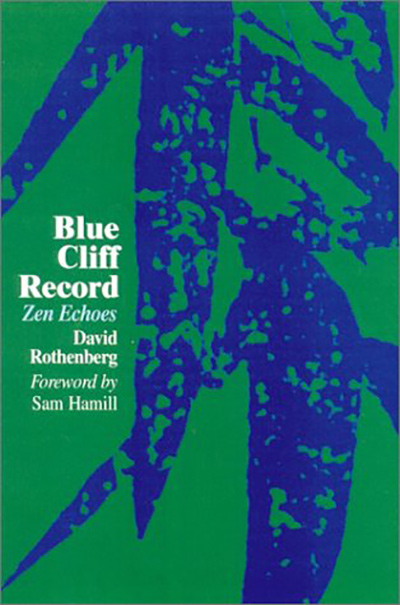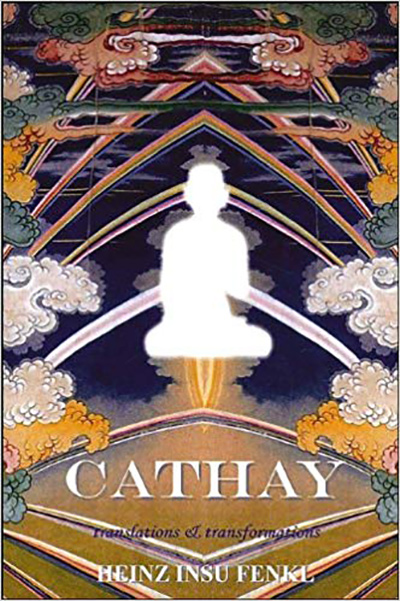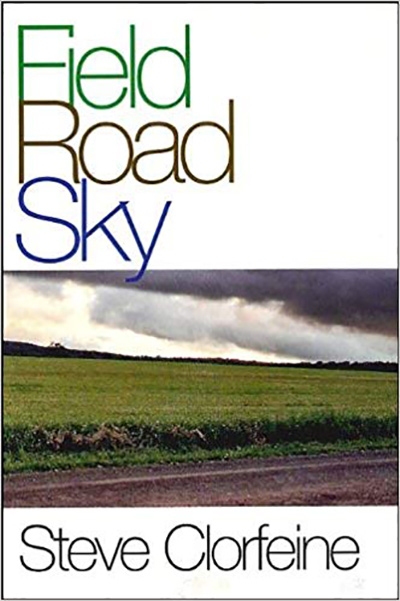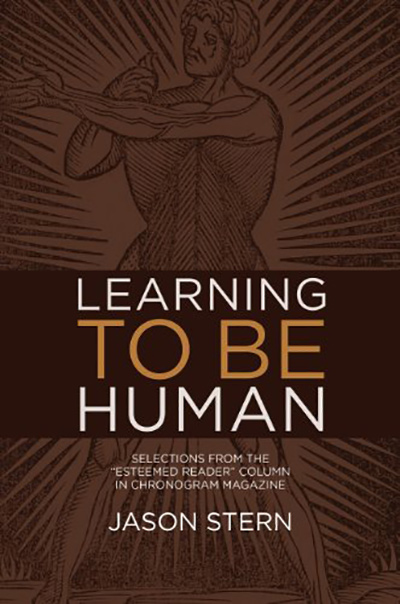-
Out of stock"When at seventeen I had become a medical student in Holland, my eye fell on a slim volume that carried in large yellow characters the title 'ZEN.' This was in 1926, when Zen was still unknown in the West. "Zen has been to me that which brings us into intimate contact with the world around us and, at the same time, with ourselves. This book, a revised edition of Echoes from the Bottomless Well, came to me at a moment of deep crisis. "The quotations from the Zen writings and words of the great Zen masters, as well as some sayings from the Gospels, were not culled from printed pages. They welled up irresistibly from some eight decades of reflection and meditation from deep down, sometimes in words, sometimes at first in images, for I am by nature not a philosopher but an image-maker. The images that came so compellingly, witness to the experience of Zen as it affected my life."
—Frederick Franck
Pairing Frederick Franck's unconventional calligraphic drawings with transformative words of wisdom from the Zen and Christian traditions, A Zen Book of Hours offers the seeds for many a heartfelt meditation on the innermost workings of life in and around ourselves.2003 | 80 pages
-
Translations and Transformations Fenkl's Cathay is a complex interweaving of fiction, translation, scholarship, and transformative writing. It includes new translations of the three luminaries of Tang Dynasty poetry: Li Po, Tu Fu, and Wang Wei—but that is only to whet the appetite. The volume also features the opening of the seventeenth-century Korean Buddhist classic, Nine Cloud Dream, by Kim Man-jung; an emulation of a horrific yet transcendent Tang Dynasty chuanji (“strange tale”); a magical, and yet postcolonial, revisioning of Hans Christian Andersen’s nineteenth-century fairytale, “The Nightingale”; and the enchanting story of the Shakyamuni Buddha’s conception and birth. The scope and depth of Fenkl’s achievement are astonishing. A simultaneous tribute to and criticism of Ezra Pound’s history-making 1915 chapbook of the same title, Fenkl’s Cathay is destined to be an instant literary classic.
2007 | 110 pages
-
Praise for Steve Clorfeine's work: "I found myself carried by his words...often an unremarkable or extravagantly beautiful list of things and events was made brilliant by the attention paid to their existence."
—Parabola: Myth, Tradition and the Search for Meaning
"Clorfeine's day to day experiences read like a series of prose haikus...there is a clarity in his writing...a habit of seeing the ordinary and the extraordinary, the marvelous in the mundane..."—Woodstock Times
2006 | 90 pages
-
Out of stock"This text must be a mirror. It must reflect the reader back to herself, so that the reader acquires a vision. It requires a power greater than the text to allow the reader to see with clarity. It is the additional matter of awakening the heart. Ultimately, a search is sustained by strong feeling for the adventure of being in light of one's inadequacy to venture forth."
—from the Foreword
A compilation of Stern’s columns from Chronogram in which he explores the intriguing concept of regional culture in its full meaning. Learning to be Human is a book about striving. The chapters are culled from a regular column in the Hudson Valley’s Chronogram magazine, over a thirteen year span. It is an inner account of a search for meaning in the light of the teachings of G. I. Gurdjieff, as well as Sufism, Buddhism, Taoism, and Judaism, in the context of the life of a seeker, lover, father, householder, athlete, publisher, and entrepreneur. The essays are a record of insights and experiences gleaned in light of a fundamental admonition: Know Thyself. What makes the book unique is its consistent return to the teachings of G. I. Gurdjieff as a key to unlocking not only the meaning of the world’s great traditions, but also the experiences of the life of a man in the world, spanning the ages of 25 to 40 years old. The style of writing varies from deeply personal, almost confessional, first-person narratives, to poetic observations, to pedagogic expositions of philosophical and religious ideas. There is a clear political point of view, but always tempered by an emphasis on self-knowledge and the reflection of the activities of people in the world in ourselves. Jason Stern is the publisher and co-founder of Chronogram. Jason Stern's meditative but acute reflections on current issues and community events seem to echo the insights of Emerson and Thoreau, viewing the cosmos through the details of current life, looking with humour on the vagaries of our minds and customs. His centering in the ideas of Gurdjieff, the Armenian Greek who startled people a hundred years ago now by his cutting insight into human folly, gives Jason an edge that puts him in a special category. But here is no jargon or harsh judgment. Here is a human voice, sparkling with warmth and softened in bemusement, a voice-over to the movie of human life he sees just outside his window. You can dip in almost anywhere and find yourself smiling, no matter how serious the topic. Such a compassionate observer is surely a reminder of our own conscience and compassion.—Anthony Blake
2010 | 270 pages






